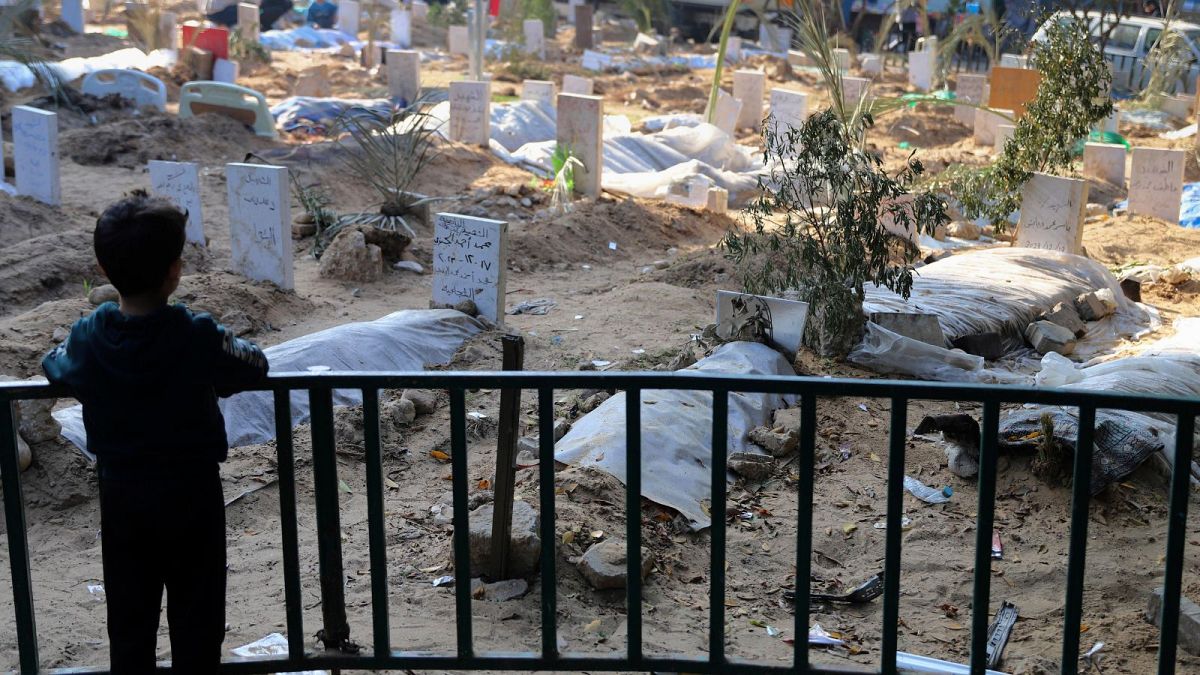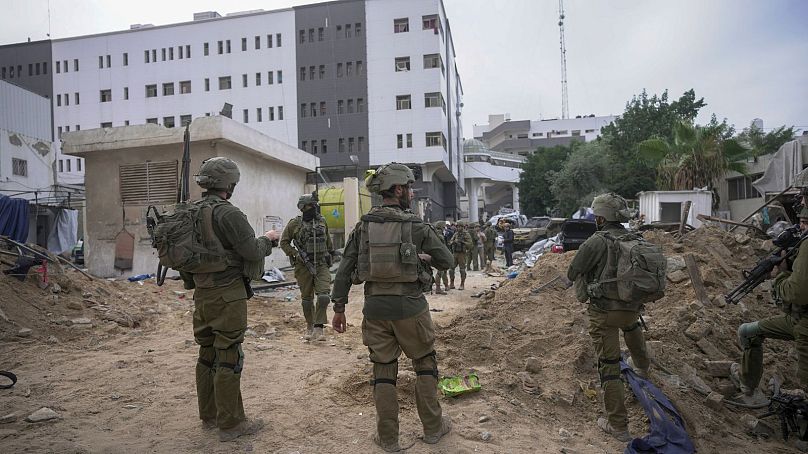South Africa’s genocide case against Israel will start to be heard this week at the International Court of Justice in The Hague - so what will happen in the court?
International Court of Justice (ICJ) will hold the first hearings this week in the genocide case brought against Israel by South Africa, which demands that the Netanyahu government stop combat operations in Gaza.
The hearing, scheduled for 11 and 12 January, has high stakes for Israel, which for the first time in its decades-long boycott of the UN’s top court has agreed to defend itself in front of the 15 elected judges in The Hague, in the Netherlands.
What’s the case about?
South Africa filed the case at the ICJ in late December, alleging that Israel had engaged in "genocidal acts" in Gaza during its declared war against Hamas and asking for the court to approve an interim measure that would stop the country’s defence forces from continuing their deadly operations in the region.
According to the African country, Israel would have violated its obligations under the Genocide Convention. The 84-page document filed by South Africa accuses Israel of committing acts in Gaza which are “genocidal in character because they are intended to bring about the destruction of a substantial part of the Palestinian national, racial and ethnical group.”
More than 22,000 Palestinians - most of them women and children - have been killed in Israeli strikes since the beginning of the conflict, according to Gaza’s health ministry. The war was triggered by Hamas’ attack against Israel on 7 October which killed 1,200 people, mostly civilians.
Israel has denied South Africa’s accusation “with disgust”, calling the claim “baseless” and announcing that it will defend itself in court - a decision that would make it more difficult for the Israeli government to brush off any possible conviction.
How will Israel defend itself?
The South African case claims that the necessary genocidal intent - which is a very particular characteristic for the crime of genocide to be proved - in this particular case "can be backed by the pattern of conduct of the Israeli military, but also by several public statements given by several Israeli representatives and officials,” a Maria Varaki, lecturer in International Law at the War Studies Department at King’s College London, told Euronews.
But this would be the aspect that Israel is likely to contest, according to Alonso Gurmendi Dunkelberg, a lecturer in International Relations at King’s College.
“With genocide, you need to want to have committed the crime with the specific intention of destroying a group as such, destroying a group because they are that group,” he told Euronews.
“And that’s the tricky part and where I expect that Israel’s defence will focus on. It will either argue that it’s not committing the act itself or argue that it has not created conditions that make Gaza uninhabitable, emphasising it let trucks carrying aid get through.”
How long will it take for the ICJ to make a decision?
The hearing on 11 and 12 January will not yet consider the merits of the genocide case against Israel, but will only decide on the provisional measures asked by South Africa as a matter of urgency. This latter decision might come between a couple of weeks and one or two months after the hearing, according to experts.
“If the court follows what it did in the previous cases of Gambia v. Myanmar or of Ukraine v. Russia - which both invoked the Genocide Convention - I would expect that in a couple of weeks, the court is going to grant the provisional order [asked by South Africa],” Varaki said.
For the merits of the genocide case, Gurmendi said, it could “take several years” before a verdict is reached by the court.
What would a conviction mean for Israel?
Crucially, the ICJ - the United Nations’ principal judicial organ - has no power to bring prosecutions, though its rulings carry a certain weight in the international community. A genocide conviction has a massive impact on the standing of a country on the international stage.
“The Genocide Convention deals with the crime of crimes. That’s why several people want that conviction,” Varaki said. “I’m not talking about the current case alone. Generally speaking, they want a conviction because they think that this is the worst conviction ever.”
While Israel would have a legal obligation to follow up on the ICJ’s potential approval of the provisional measure demanded by South Africa, Gurmendi Dunkelberg said there have been precedents of cases not complying, including the US.
“The problem is that, [in terms of] enforcement, there’s no international police to knock on your door and say ‘You are in breach of a judge’s order, I’m taking you in for contempt of court or anything like that.’ So really, it depends on what other states can and do,” he said.
“Supposing that Israel would not comply with the order - which is not granted, Israel might just comply with it - then other states might be able to pressure Israel [to do so].” A conviction might weaken the Western allies’ support for Israel’s war in Gaza.

